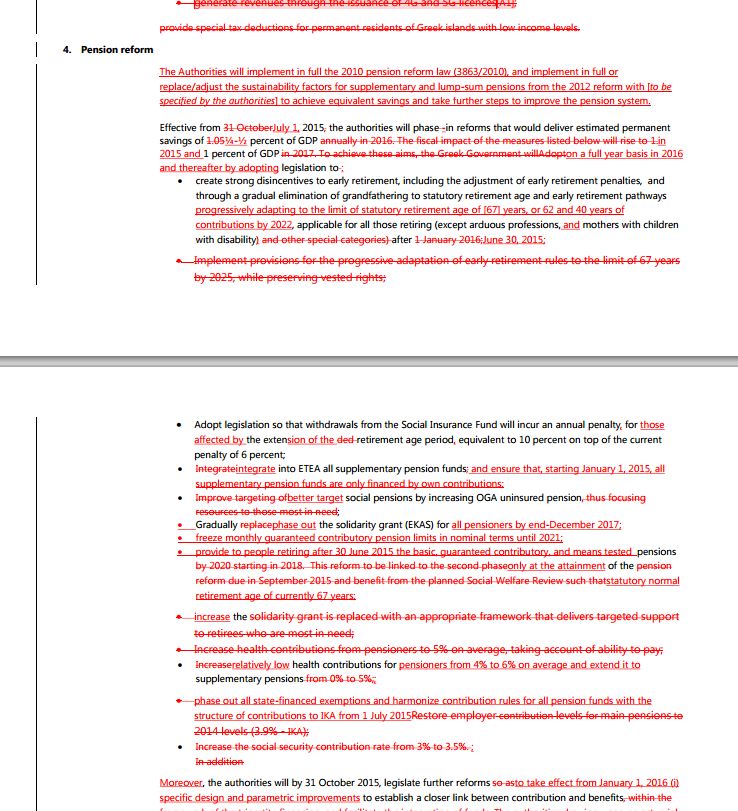Greek crisis: Leaked document shows creditors still at odds with Greece

A document leaked this afternoon shows deep divisions remain between Greece and its creditors over crucial issues such as taxation and pensions.
Read more: Can Greece get past its sticking points?
The document, leaked to several sources including the FT, showed Greece's original proposals, heavily edited by its creditors. Issues such as VAT and pensions remain massively divisive.
This comes after Greek Prime Minister Alexis Tsipras launched a blistering attack on the International Monetary Fund (IMF), accusing the country's lenders of "serving specific interests".
Speaking to his aides before he departed to attend today's talks in Brussels, he said:

The document showed dozens of crossings-out by creditors
Banks led stocks in Athens lower after reports suggested "not much progress" was made during talks yesterday.
The Athens Stock Exchange was down 3.4 per cent in late morning trading, pushed lower by the likes of Bank of Piraeus, whose shares dropped 8.7 per cent to €0.39, while National Bank of Greece fell 8.3 per cent to €1.10 and Alpha Bank dipped 7.9 per cent to €0.28.
The news came after Eurogroup chief Jeroen Dijsselbloem was instructed by European leaders to reach a settlement tonight, even if it takes all night. Tsipras arrived in Brussels today for fresh talks with chiefs of the IMF, European Central Bank (ECB) and the EU.
Greece needs to unlock €7.2bn of bailout money from its lenders in order to pay the IMF €1.6bn in interest repayments on 30 June.
Earlier today, Greek economy minister George Stathakis had said "two or three" items – including long-term debt relief and a 30 per cent hike on VAT on the Aegean islands – remain to be settled. He told Greek channel Mega TV he was "confident" a deal will be reached.
Read more: Four questions on Greece we still want answered
Even if a deal with its lenders is agreed, Greek Prime Minister Alexis Tsipras could face insurgency from MPs in his own party, Syriza, some of whom have threatened to rebel in a vote over the fiscal consolidation expected to be approved by Greece's lenders.
But Stathakis suggested MPs would accept the deal.
"I think this balanced deal is defensible to Syriza, and in Greek society too."